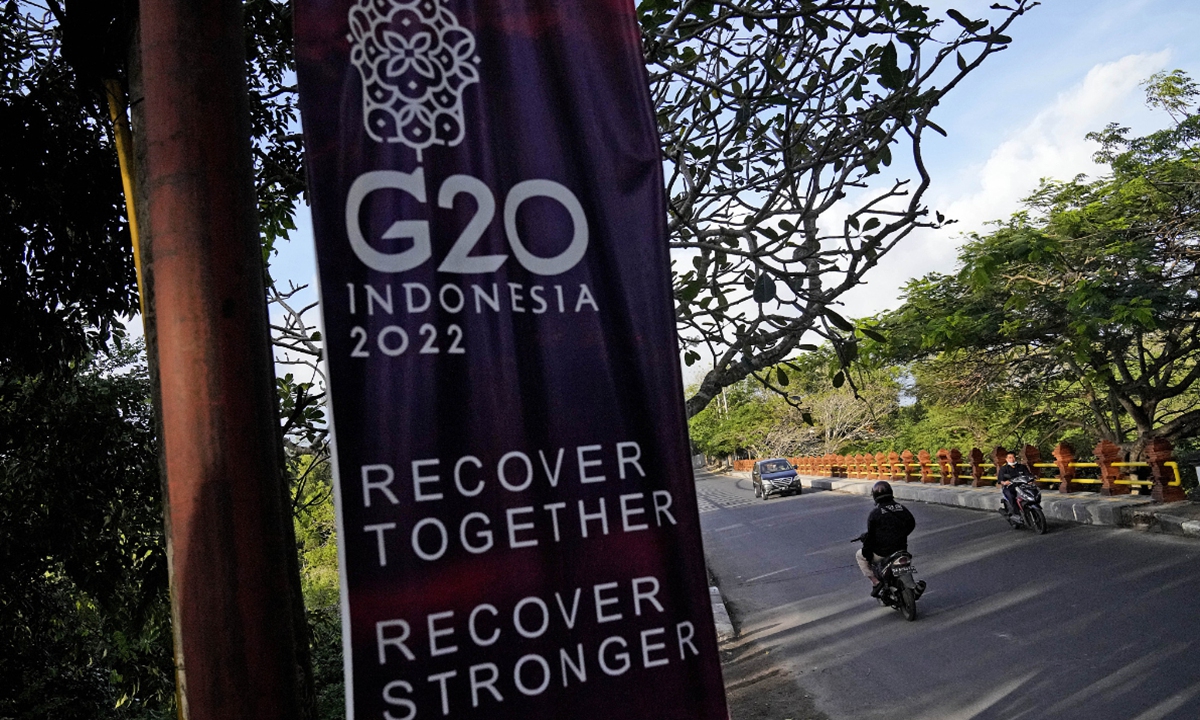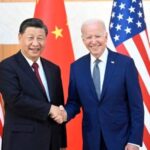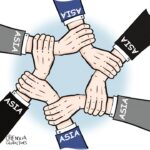The first G20 summit in Washington DC in 2008 stands in stark contrast. It adopted, with overwhelming support, the largest fiscal and monetary stimulus ever undertaken, thereby averting the worst depression since the 1930s. In contrast to this remarkable display of unity, Bali will be a forceful reminder of how divided the world now is. In 2008, China and the US were on the same page. In 2022, the US now regards China as its sworn enemy. The meeting between Chinese President Xi Jinping and US President Joe Biden is likely to remind us of this.
Although the US has hitherto refrained from calling the present US-China relationship a cold war, this is patently the American playbook. The aim is to contain and isolate China, to undermine its links with the rest of the world, and thereby reverse the tide of China’s rise. The attempt to cut China off from American semi-conductor technology is the latest example. Be that as it may, the US is finding it far more difficult to isolate China than it anticipated. The world is very different from what it was during the Cold War when it was divided into two hostile and hermetically sealed blocs.
The Russia-Ukraine conflict is a very good example of how things have changed. The US sought to erect an economic blockade around Russia by means of economic sanctions. Europe went along with this but most of the world did not, a classic example being India. Economic sanctions haven’t worked in the way intended. If the US can’t economically isolate Russia, then there is zero chance that it could isolate China, which, as the world’s largest trading nation, is hugely more important to the global economy than Russia.
The Russia-Ukraine conflict proved to be a highly successful recruiting sergeant in Europe for a closer US-Europe relationship. Since the end of the Cold War, there had been a gradual process of distancing between Europe and the US. This now came to a screeching halt, replaced by a new enthusiasm for the Atlantic alliance, combined with increased hostility toward China, with China and Russia portrayed as identical. But, in a crucial intervention, German Chancellor Olaf Scholz recently spelt out the importance of China to Germany’s future. He went to China and met with Xi, the first Western leader to do so since the pandemic. He publicly rejected the idea of decoupling.
He then reaffirmed Germany’s opposition to dividing the world into rival blocs. This goes against the grain of post-Ukraine trends in Europe, exemplified by Britain, the US’ ever-willing and reliable lapdog. Scholz has drawn a line and indicated an important degree of continuity with Angela Merkel’s previous approach to China. It will be interesting, in this context, to hear what French President Emmanuel Macron says in Bali during his meeting with Xi. The signs are that Europe’s commitment to strategic autonomy has not been erased, but is now being quietly reasserted, that its relationship with China will continue to grow, and that it will keep its distance from America’s cold war aspirations.
Europe will remain an important weathervane of geopolitical alignments. But, however autonomous it might or might not become, it will, for manifold reasons, tend to lean toward America. ASEAN is very different from Europe, but at least as important. It is a template for a new kind of international order. With extraordinary skill, it has managed to remain aloof from US-China divisions, pursue relations with both, while, given its regional proximity to China, being transformed by China’s economic rise. It is the most interesting example of how a group of countries can negotiate a new kind of close and harmonious relationship with China. The US has wisely sought to develop a closer relationship with ASEAN, but, barring a huge misstep by China, it will never displace China’s importance for them.
So what does the future hold? America will not be able to contain China. The latter will remain deeply connected with the world. China’s greatest strength is the close relationship it has built with the developing world. America’s alliance system, in contrast, dates back to the postwar world. It is rooted in the past. It is composed essentially of a bunch of declining developed countries, mainly European, plus Japan, Canada, and Australia. Compared with China, the US has little resonance in the developing world. This is an enormous strategic weakness. These are some of the parameters which will shape the future. How that future might actually evolve in practice, of course, is another matter. We live in very unpredictable times.
The author was until recently a senior fellow at the Department of Politics and International Studies at Cambridge University. He is a visiting professor at the Institute of Modern International Relations at Tsinghua University and a senior fellow at the China Institute, Fudan University. Follow him on twitter @martjacques. opinion@globaltimes.com.cn













